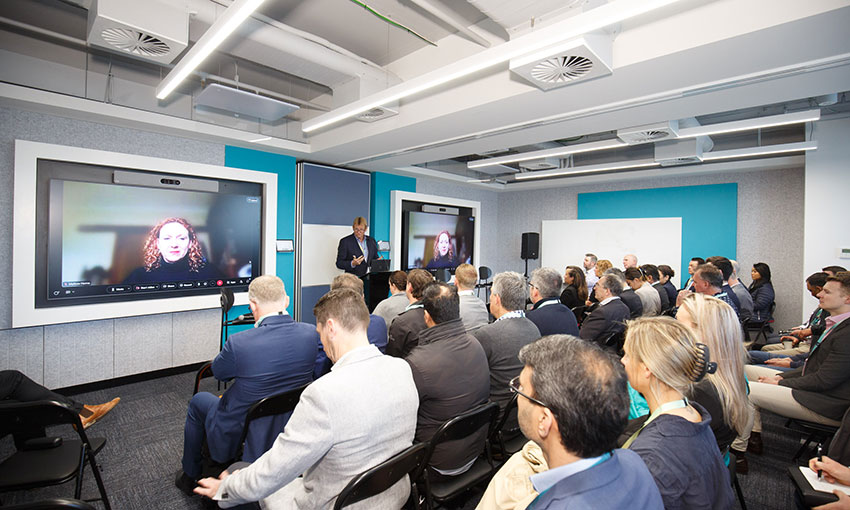SUPPLY chain leaders gathered last week to discuss the many lessons learned in freight and logistics over the past two years, and how to leverage technology to optimise operations.
ALC CEO, Dr Hermione Parsons said the summit provided an opportunity for those in the supply chain to emphasise the need for the uptake of new technologies. She said there was also discussion of greater co-operation and investment from government – particularly on the need for nationally consistent road pricing and the development of alternative fuel and refuelling technology.
“The discussions of the summit again reiterated the need for industry and governments, to work collaboratively to unlock the potential of emerging technologies, in data, automation and simulation to improve operations, as well as in other fuel sources to achieve decarbonisation,” she said.
“Again we heard that as a result of recent and ongoing disruption, particularly as we approach Christmas, more and more businesses are taking up the just in case approach of holding increased inventory,” Dr Parsons said.
Here Technologies general manager for Australia and New Zealand Daniel Antonello added to the discussion, the importance of technology.
“Location technology plays a critical role in supply chain visibility and transparency, both of which are key to optimising business efficiency. For example, 40% of Melbourne’s port exports are empty containers,” he said.
“This is the type of inefficiency that can be solved through location-enabled tracking and monitoring. Supply chain players who harness location technology can also improve resilience, better satisfy customers and reduce their carbon footprint,” Mr Antonello said.
Industry participants shared information on the latest technology facilitating the efficient movement of freight and improving industry safety.
The summit was opened by Victorian ports and freight minister Melissa Horne, who spoke about the importance of data to government so better investment decisions can be made.
“This includes knowing where freight is moving and where the pinch points precluding freight movement are,” Dr Parson said.
“The minister concluded that whilst initiatives such as the Port of Melbourne Voluntary Performance Monitoring Framework was progress, a low level of trust in freight data and inconsistent data standards remain a frustration to government. There is more work to be done.”

